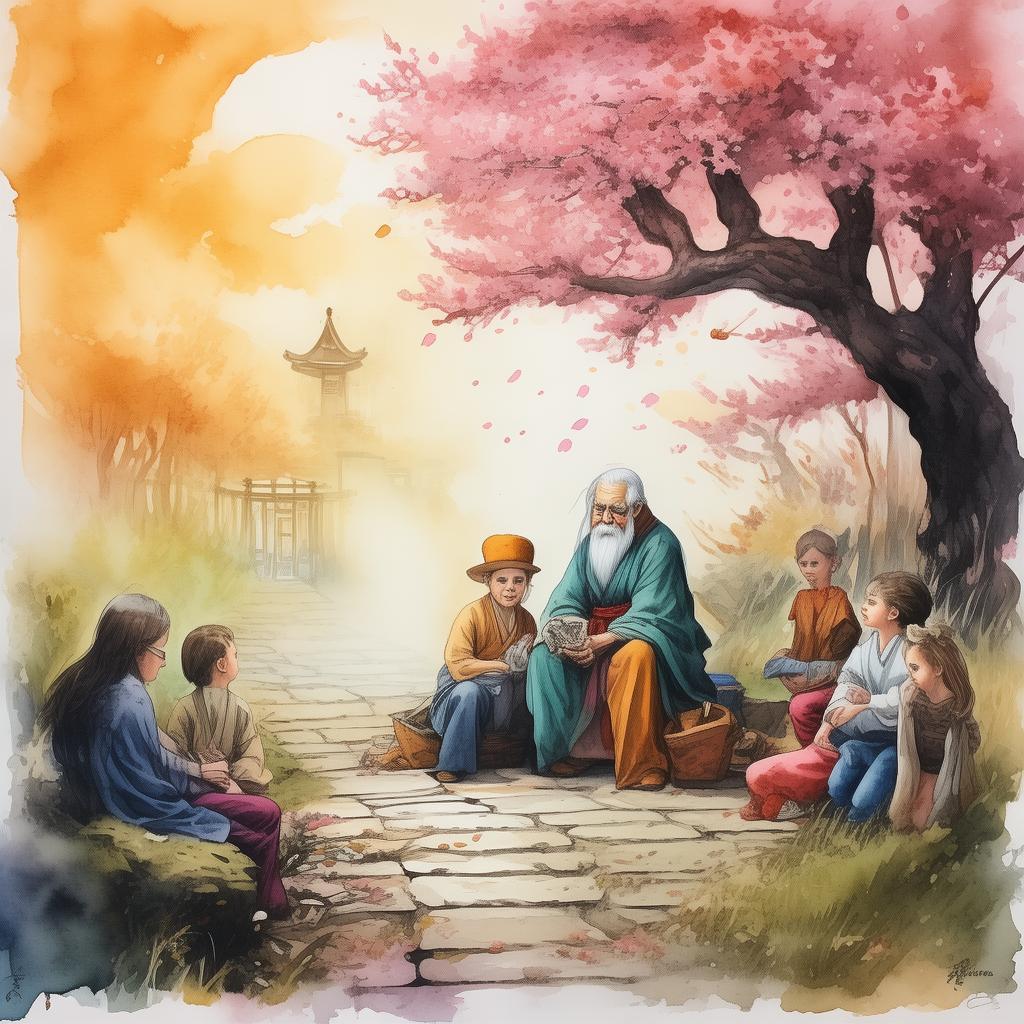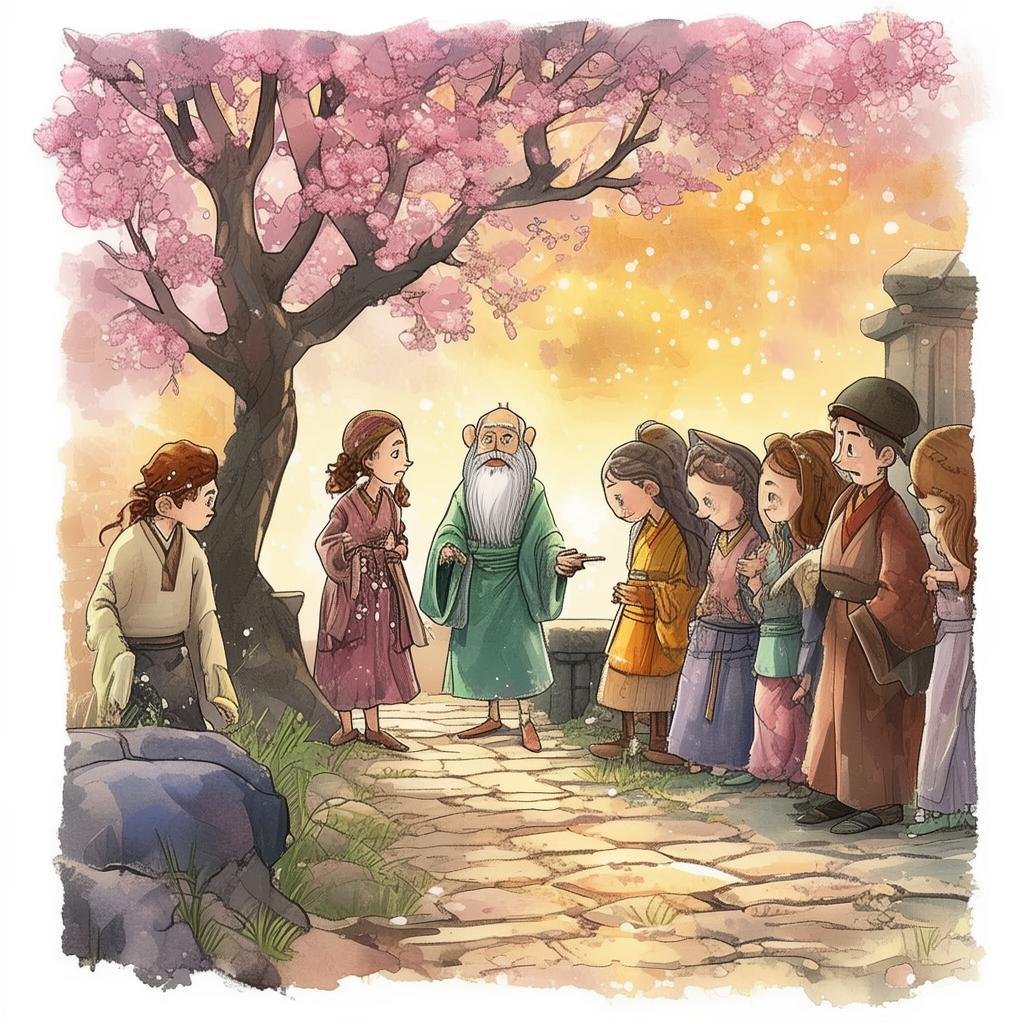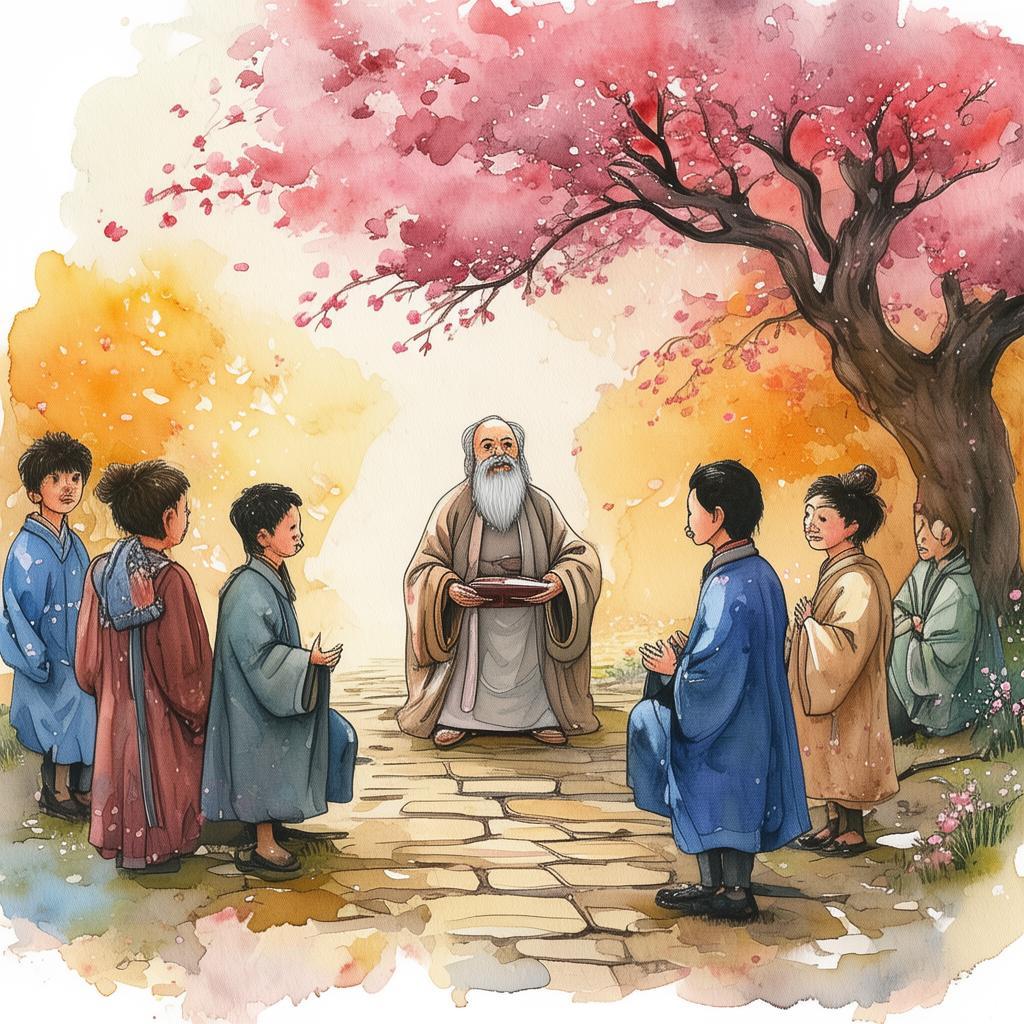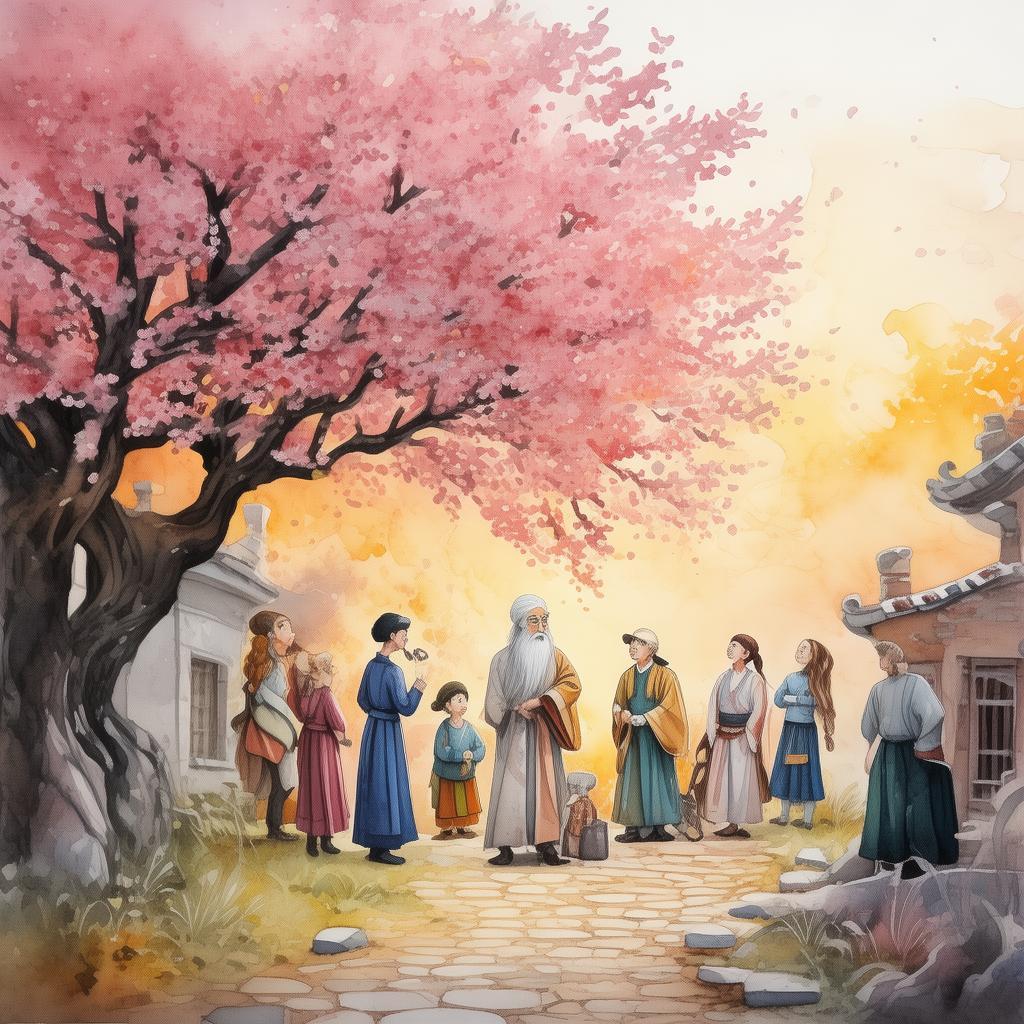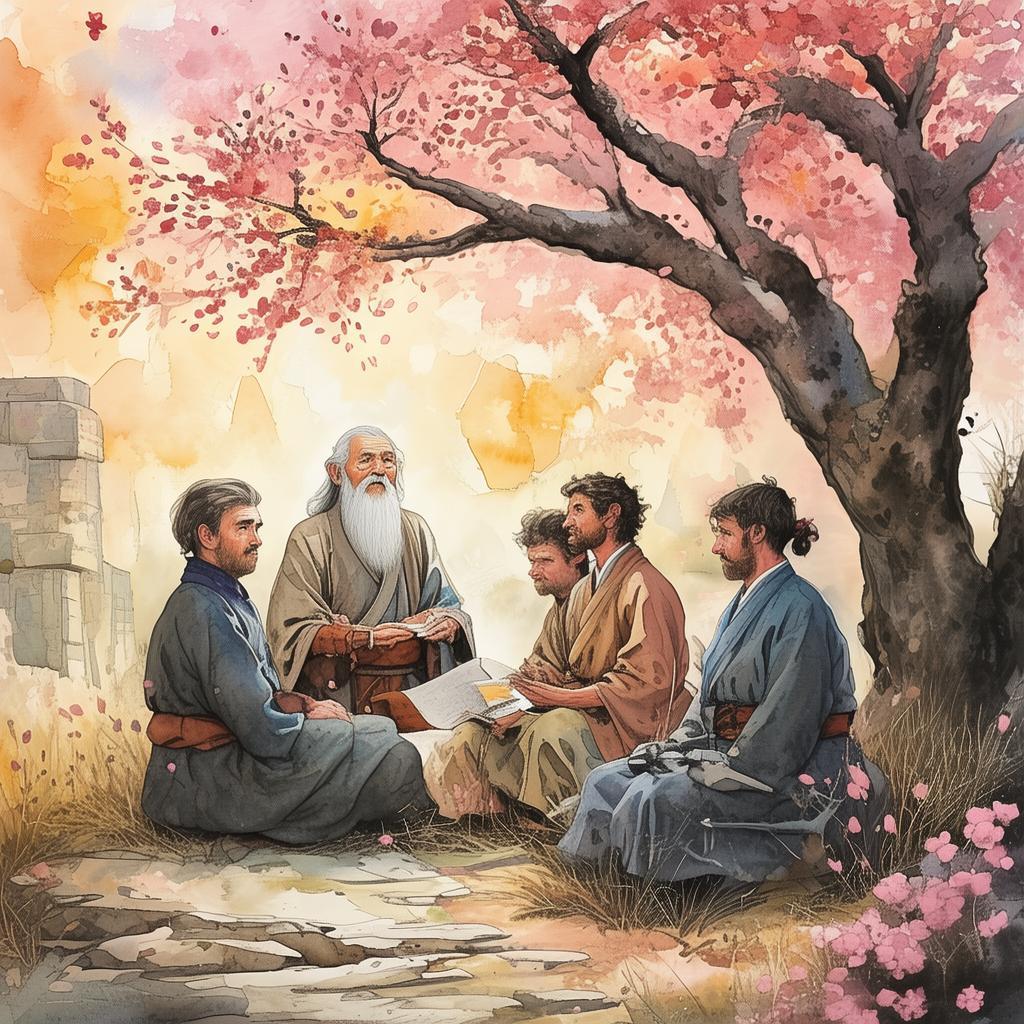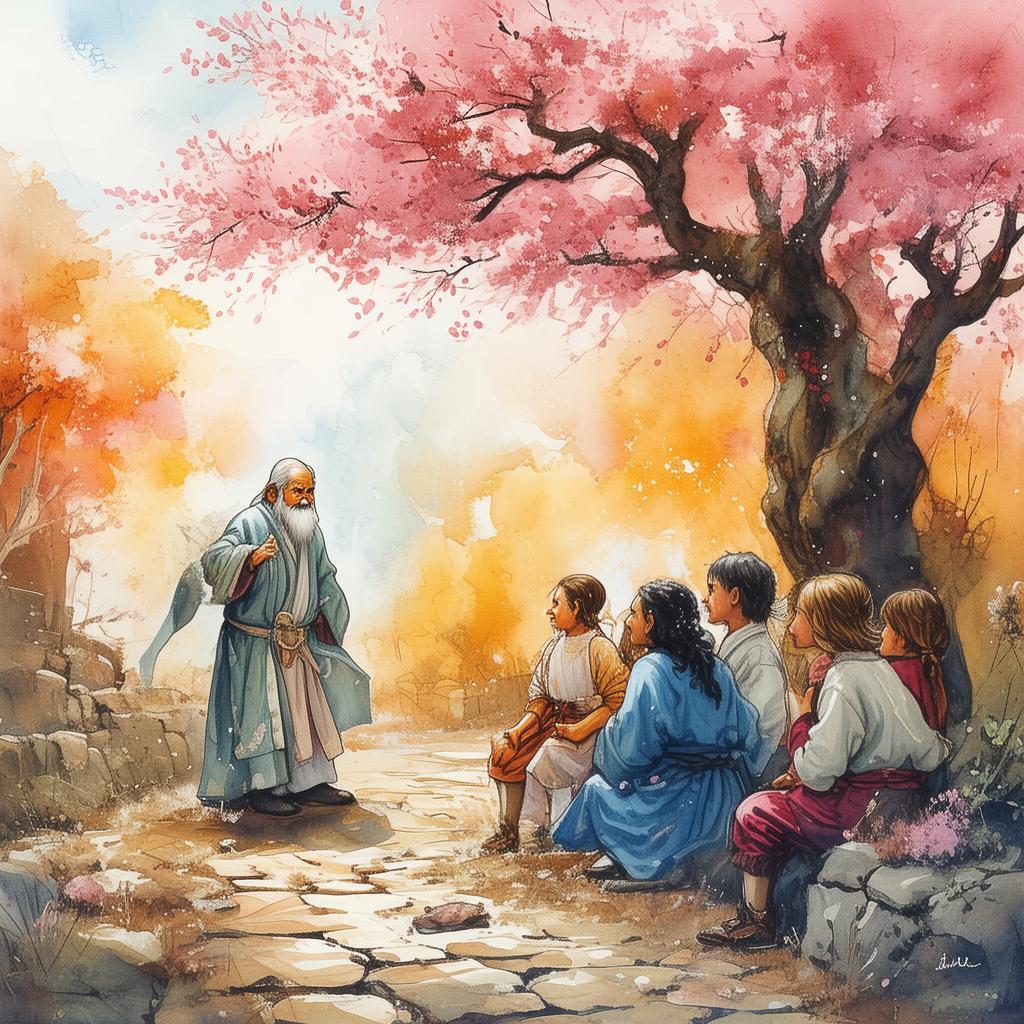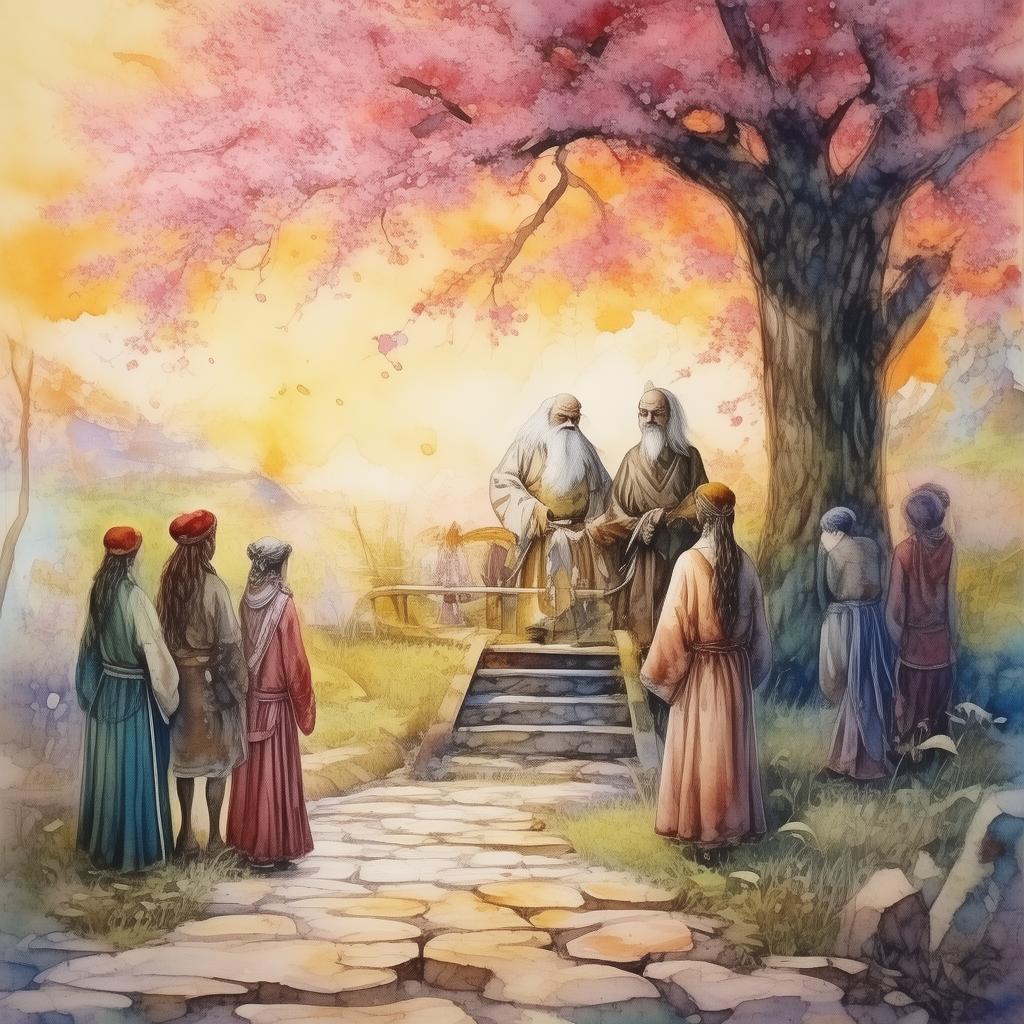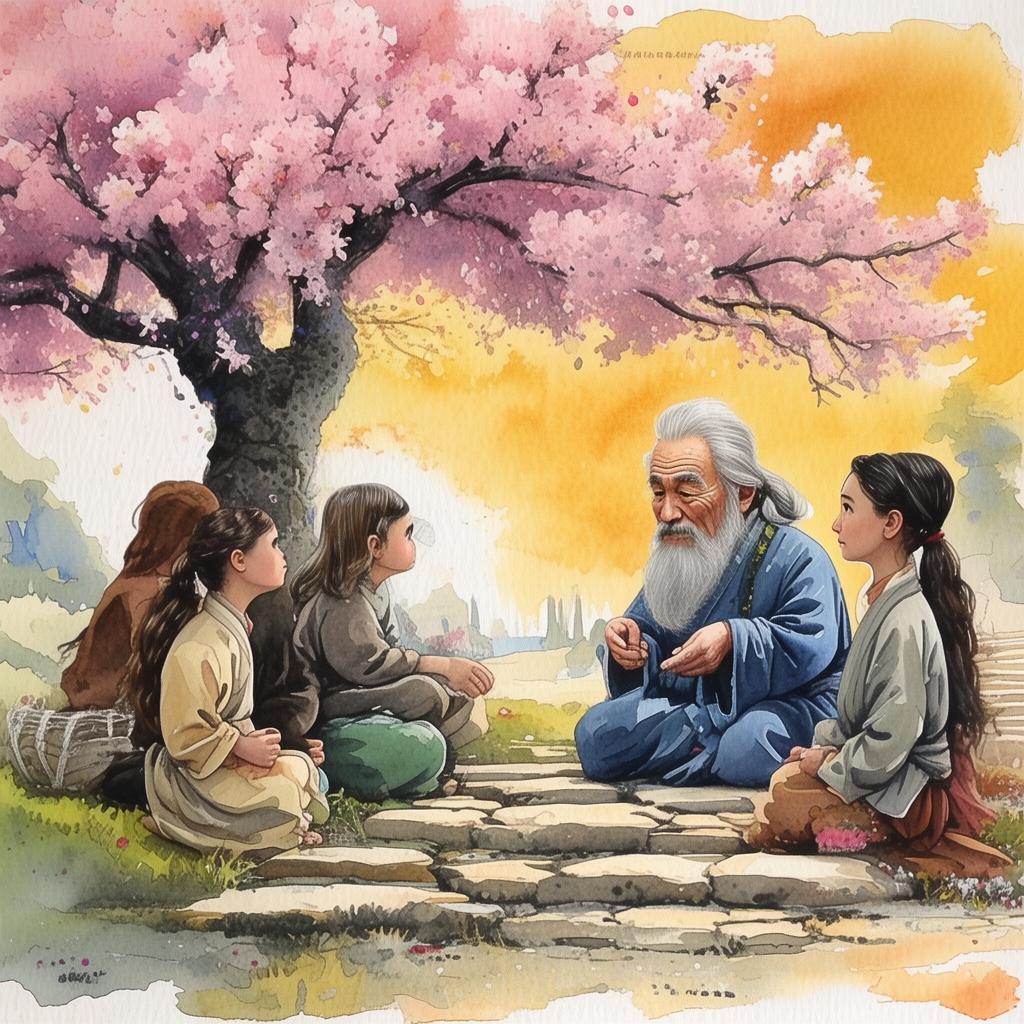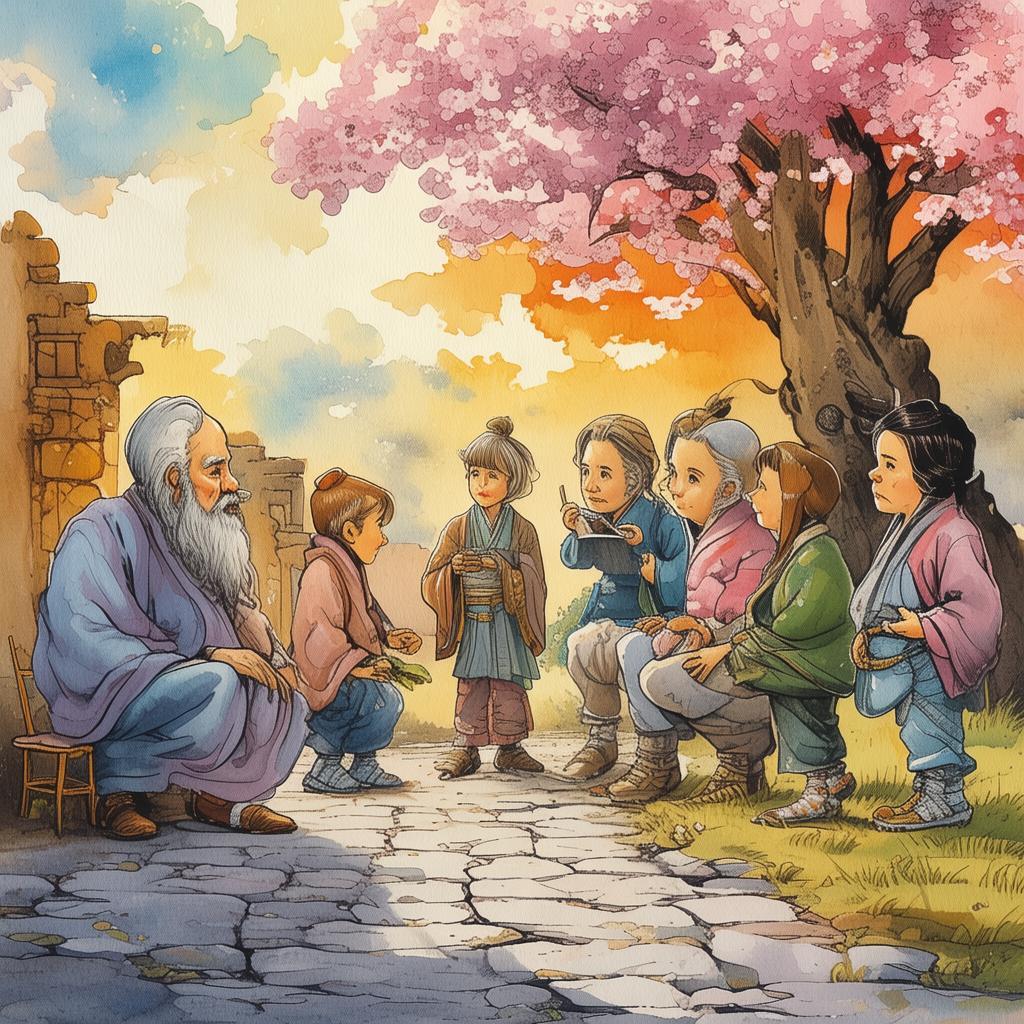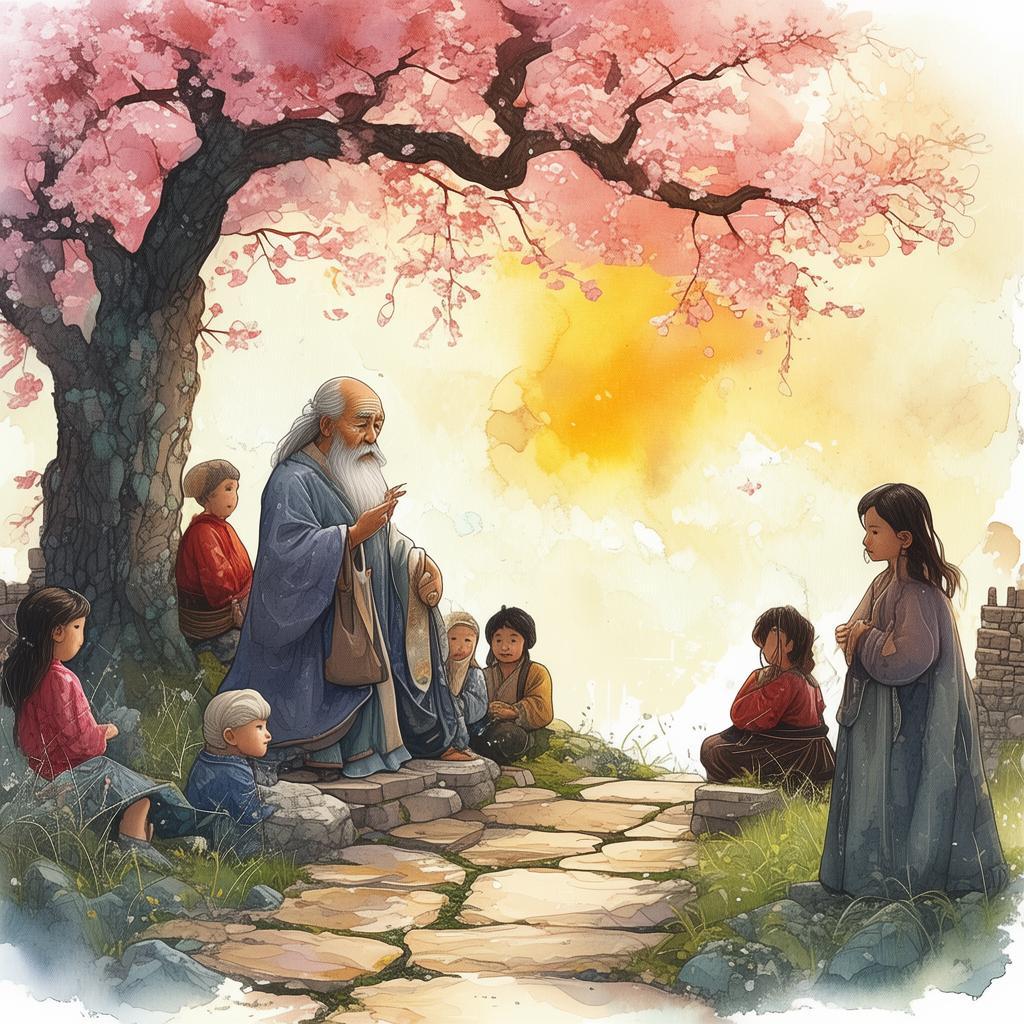The Song of the Soul's Lament
In the ancient land of Liang, where mountains kissed the clouds and rivers whispered secrets, there lived a poet named Yun. His name was whispered in reverence, for Yun's verses were said to touch the soul, to resonate with the very essence of the world's spirit. Yet, beneath the surface of his celebrated verses lay a man who was as broken as the world he sought to mend with his words.
The story begins on a crisp autumn morning, as Yun sat beneath the boughs of an ancient willow tree, his ink-stained fingers tracing the lines of a new poem. The willow's branches swayed gently, as if listening to the whispers of the wind, which carried the scent of pine and the distant sound of a waterfall. Yun's eyes were fixed on the page, his heart heavy with a sorrow that no one could see.
It was then that he heard a voice, soft and melodic, like the song of a nightingale. "Yun, your words are the soul's song," the voice said. Startled, Yun looked up to see an ethereal figure standing before him, her eyes filled with the wisdom of ages. "You have the power to heal the world with your words, but first, you must heal your own soul."
Yun's heart raced. He had heard tales of such beings, but to meet one face-to-face was a dream he never thought would come true. "How can I heal my soul?" he asked, his voice trembling with hope and fear.
The figure smiled, her eyes twinkling with a knowing light. "You must first understand the pain that resides within you. Only then can you share your healing with the world."
And so began Yun's journey, a poetic odyssey that would lead him to the depths of his own being. He traveled through the land of Liang, visiting the places where his heart had been wounded—places of sorrow and loss, of love unrequited and dreams shattered.
In a small village, he met a woman who had lost her child to a mysterious illness. Her eyes were hollow with grief, and her voice was a whisper when she spoke of her loss. "Your words," she said, "have brought me comfort. They have given me hope."
In a distant forest, he encountered a young man who had been betrayed by his closest friend. The man's spirit was broken, his heart a shattered mirror reflecting only shadows. Yun listened to his tale, and as he spoke, the young man's eyes began to shine with the light of forgiveness.
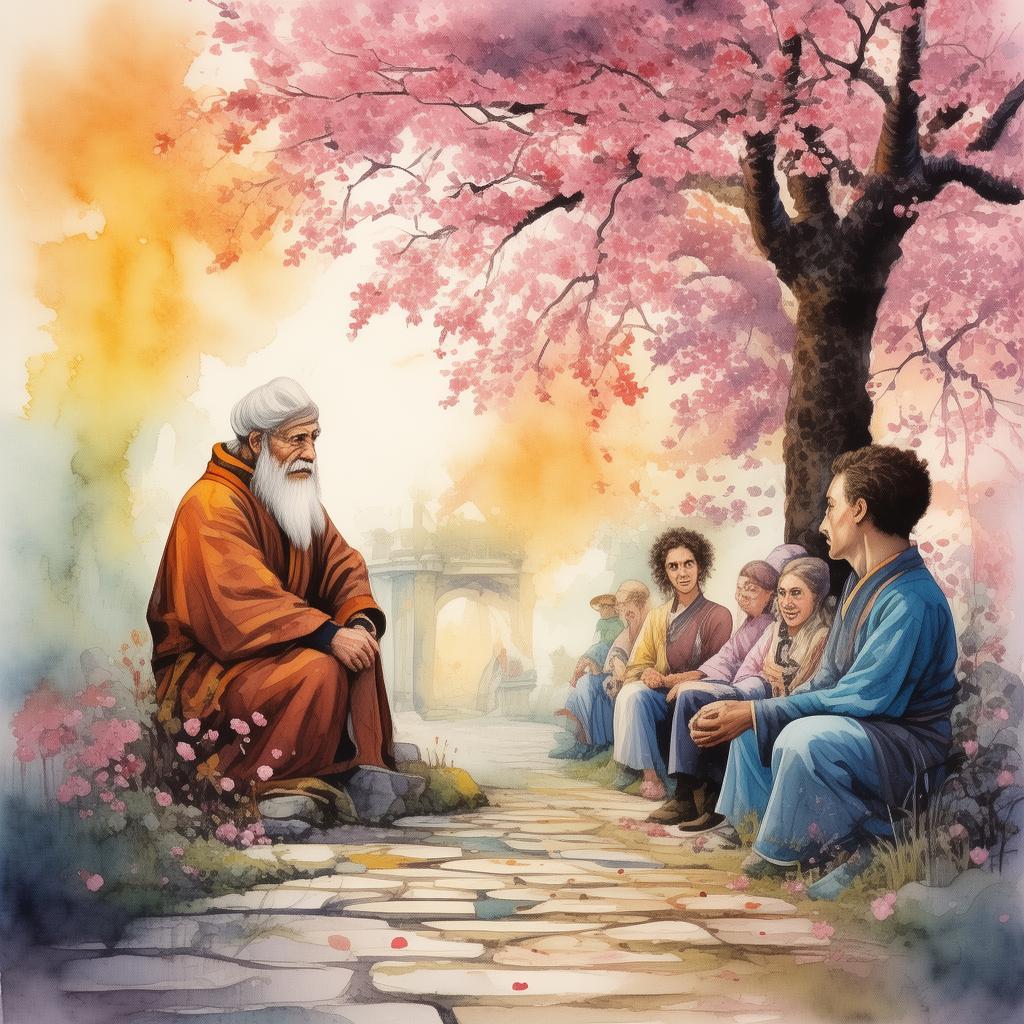
At each stop, Yun's heart grew heavier, for he saw the reflection of his own pain in the eyes of those he sought to help. He realized that the world's sorrow was a mirror of his own, and that the healing he sought was not just for others, but for himself as well.
One night, as the moon hung like a silver coin in the sky, Yun sat by a riverbank, his head in his hands. He felt the weight of his burden, the weight of his own sorrow. "Why must I carry this pain?" he whispered to the night.
The voice of the ethereal figure echoed in his mind, "Because it is through your pain that you will find your strength. It is through your sorrow that you will become a beacon of hope for others."
Yun looked up, his eyes meeting the moon's gaze. He felt a surge of determination, a resolve to face his own demons. He began to write, his words flowing like a river, unburdening his soul with each stroke of his pen.
The next morning, as the sun rose and painted the sky with hues of gold and pink, Yun stood before the village, his hands raised, his voice filling the air with the words he had written. "I have found my strength in my pain," he declared. "And I promise you, my friends, that I will use my words to heal this world, one soul at a time."
The crowd fell silent, their eyes fixed on Yun. They felt the power of his words, the power of his soul's song. And as he spoke, they too felt the weight of their own sorrows lift, for in Yun's words, they found a shared humanity, a shared hope.
The story of Yun, the poet whose words were the soul's song, spread far and wide. It became a tale of hope, a tale of healing, a tale that showed the world that even the darkest of souls could find light within.
And so, Yun continued to walk the land of Liang, his heart lighter, his spirit renewed. He wrote his verses, not just for the sake of beauty, but for the sake of healing, for the sake of the soul's song that resonated within each of us.
✨ Original Statement ✨
All articles published on this website (including but not limited to text, images, videos, and other content) are original or authorized for reposting and are protected by relevant laws. Without the explicit written permission of this website, no individual or organization may copy, modify, repost, or use the content for commercial purposes.
If you need to quote or cooperate, please contact this site for authorization. We reserve the right to pursue legal responsibility for any unauthorized use.
Hereby declared.
